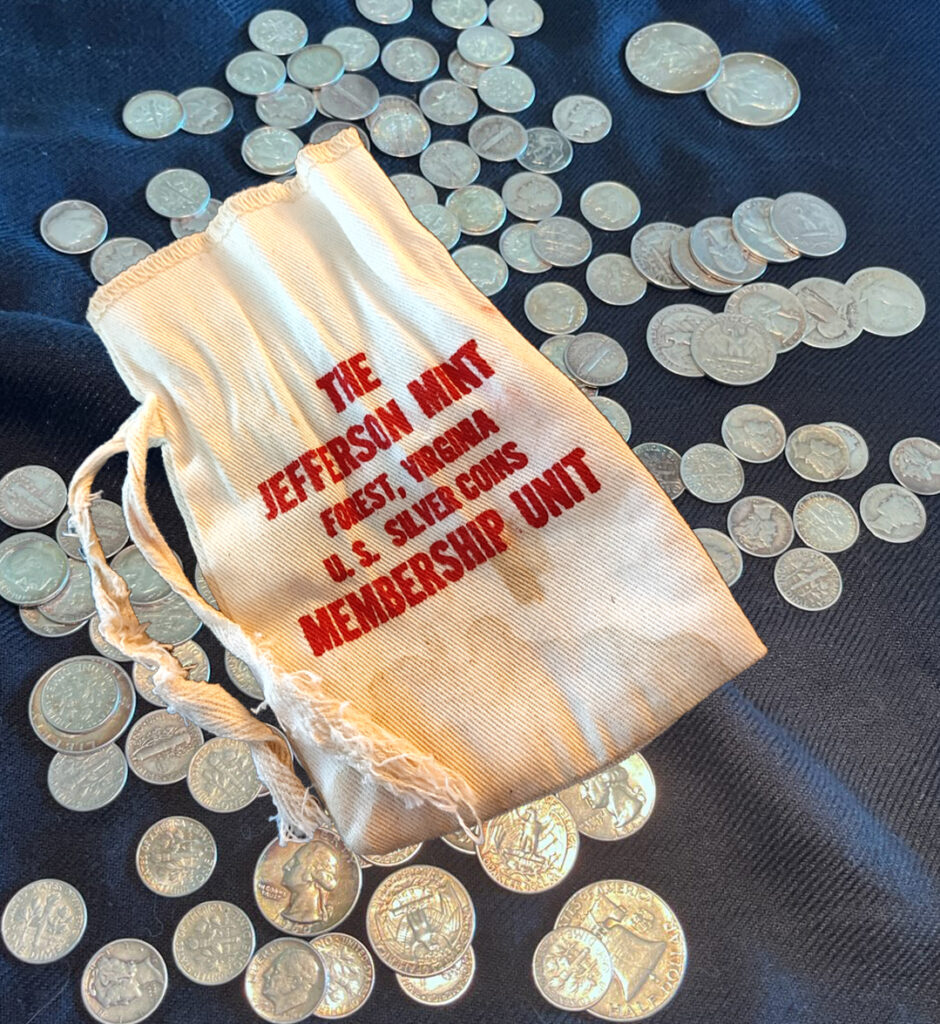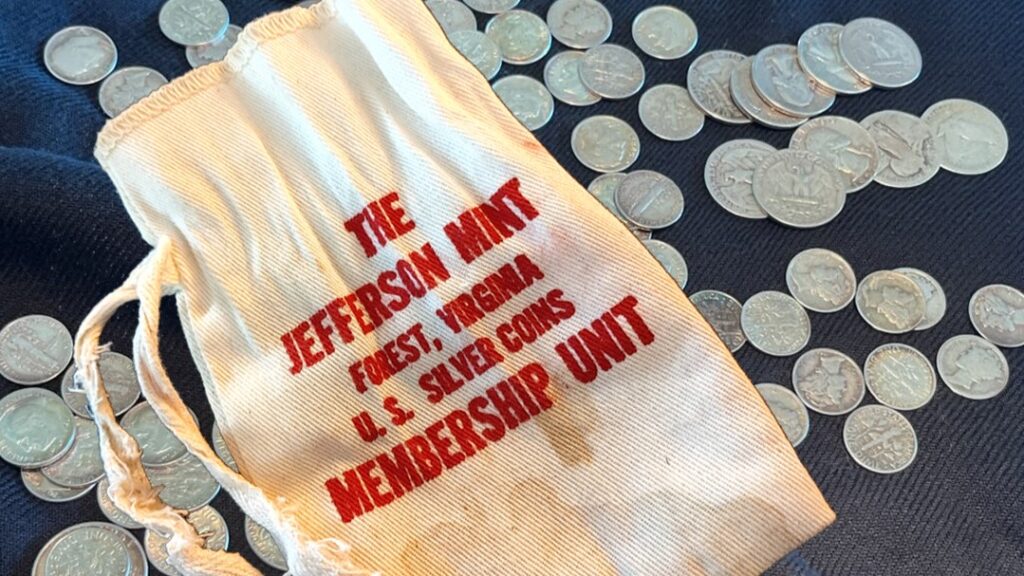I have a friend who has taken into hand the little bag of silver US coins that was a legacy from my father. My friend wants to check its value. She is into buying and selling silver.
Great, I say to myself, a diversion to soothe me while the US Congress passes Trump’s “big beautiful” monstrosity. Alongside the US-Canadian exchange rate, it is wreaking havoc on my retirement.

When my father died in 1993, my brother, the executor of his will, sent me a small bag of US coins. Each of us eight children got one. I’m sure my brother counted fairly.
Mine came in a little canvas bag labeled “The Jefferson Mint,” the name of a scheme that sent my father a handful of silver coins each month.
In my bag were three half-dollars, 20 quarters, and 121 dimes. My brother said the coins were then worth about two cents more than their face value, with a quarter coming in at 27 cents.
But that has changed, my friend says.

The price of silver has been going up by peaks and valleys. On October 23, 2005, it was $9.61 per Troy ounce. On August 25, 2022, it was $25.64. On July 4 this year, it was up to $50.33.
We go to a local money shop, where the agent offers 22 times the face value of the coins. He offers to buy a US half-dollar for $11 Canadian, no matter whether it sports JFK’s face or that of Benjamin Franklin. The little bag of coins would net me $410.
That, he says, is the “spot” price, the on-the-spot value based on the current market price of silver, quick ‘n’ easy pricing for coins with silver content, or “junk silver.” The term covers US coins dated before 1965 (90% silver), and Canadian coins dated before 1968 (80% silver).
My friend is seriously into these things. She says that, considering the current market price, he should have offered 25 times the face value, or $465. But more than that, some of the coins could have numismatic value and be worth a lot more.
I owe a little money to my friend, but she wants to be paid in silver rather than with that worthless plastic stuff. So we make an agreement that she will take the coins back to her home in the big city and check their value with a coin dealer there. Then she will keep the silver she is owed, and cash in the rest for me.
She wants to hang onto her silver for awhile, hoping it will get up to $100 an ounce, where it seems to be heading.
By the way, “filthy lucre” is mentioned four times in the Bible, instructing that church deacons eschew dishonest financial profits. They must not abuse their office to make money.
Now who in the world would do something like that?


